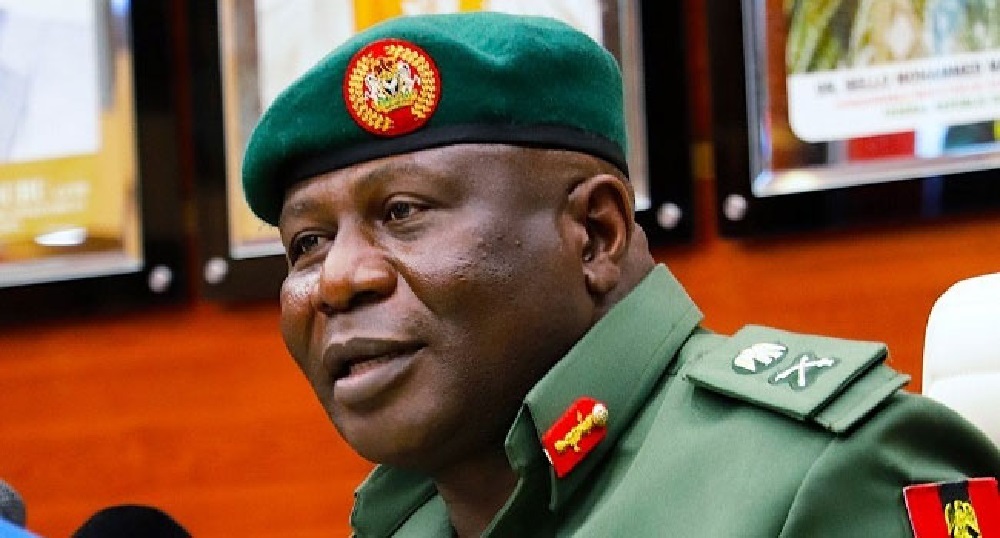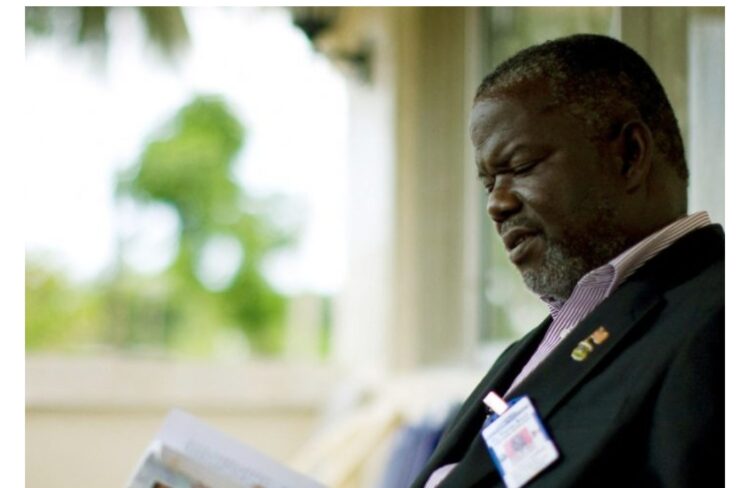News
We Can’t Stabilise Naira if smuggling goes unchecked – FG admits

By Mario Deepromoter
The National Security Adviser (NSA) Mal. Nuhu Ribadu has decried the rising trend of smuggling of petroleum products outside the country, adding that instability in the foreign exchange market will continue if it is not tackled.
Ribadu made the disclosure in Abuja on Monday at a stakeholder engagement on operation Whirlwind hosted by Nigeria Customs, which is targeted at tackling smuggling of petroleum products outside the country.
He said, “We have been suffering due to smuggling, and if we want to address our economic problems, smuggling has to stop. It is difficult because it is like cancer and eats up everything. It destroys us and even our security forces because of the very few individuals making profit from it and half of them are not even Nigerians.
“I don’t think there is any country that suffers from smuggling like Nigeria and we have to address it now because with they trouble we are going through, we can’t stabilize Naira and if we can’t stabilize Naira, then we are in trouble.”
The NSA further revealed that his office will provide the necessary support needed for the Customs Service and other security agencies to tackle the current issue.
Also speaking, the National Coordinator, Operation Whirlwind, Comptroller Hussein Ejibunu stated that the programme started on May 28 2024 and officers of the Service swung into action in collaborating with NMDPR to assist with the implementing the assignment.
Speaking further, he said, “From May till date, the Customs has made about 27 seizures and detected smuggling networks in Badagry and Adamawa.
Other activities have also improved border security and we have succeeded in ensuring fuel smuggling is reduced. Our collaboration with NMDPRA has also been critical and germane. So far, we have seized 500,000 litres of PMS with 7 trucks amounting to 475m.
“The seizures were done in Kebbi, Sokoto, Lagos and Adamawa. We have opened other axis in Kwara, Niger, Katsina and Kano. Because of this work, most of our officers are on death threats including myself and they sent us messages to desist from fighting, but we won’t relate because we ought to fight and ensure survival of Nigeria,” he stated.
The Comptroller General of Customs, Bashir Adewale Adeniyi stated that the stakeholders’ engagement was to nip smuggling in the bud.
“We won’t spare any effort in combating the menace and this explains why we launched Operations Whirlwind and we have made some progress.
“However, we need funding because we spend about N230 million monthly to sustain the operation and because it is not in our budget it is not sustainable and Customs may not be able to drive it alone. As such, we will need funding collaboration and we intend to sustain it till the end of the year,” he added.
News
Reps Resolve To Continue Consultation on Tax Reform Bills

News
Just in: Reps confirm Oluyede Chief of Army Staff

The House of Representatives on Thursday has confirmed Lit-Gen. Olufemi Oluyede as the substantive Chief of Army Staff.
This followed his screening on Wednesday by the Joint Committees on Defence and Army.
The committee Chairman, Babajimi Benson submitted the report during plenary and urged the House to confirm Oluyede; a prayer granted at the session presided over by the Deputy Speaker, Benjamin Kalu.
Details later…
News
Just in: Former Liberian warlord Prince Johnson dies at 72

Ex- Liberian warlord Prince Johnson, a key player in the 1989-2003 back-to-back civil wars, died Thursday aged 72, officials from his party and the Senate revealed.
Johnson, who was seen sipping beer in a video as fighters loyal to him tortured then-president Samuel Doe to death in 1990, was an influential senator.
Senator Johnson was the longest-serving senator,” said Siaffa Jallah, deputy director of press at the Senate.
“Yes, we lost him this morning. He passed away at Hope for Women (health centre)”, Wilfred Bangura, a senior official in Prince Johnson’s Movement for Democracy and Reconstruction party, told AFP.
The death of Doe was an early bloody episode that would plunge Liberia into two civil wars which killed some 250,000 people and ravaged the economy.
Prince Johnson, who hailed from the northern region of Nimba, later became a preacher in an evangelical church where he enjoyed wide popularity.
He was also a leading opponent of the creation of a tribunal that would try civil war-related crimes.
-

 News12 hours ago
News12 hours agoConfusion As Okpebholo Suspends Free Bus Services Earlier Approved For Edo Residents
-

 Sports13 hours ago
Sports13 hours agoBayern Munich Apologise To PSG For Offensive Banners
-

 Foreign13 hours ago
Foreign13 hours agoBomb Threats Target Trump Nominees, FBI Says
-

 News13 hours ago
News13 hours agoI’ll Work With Other Stakeholders To Bring Lasting Peace To Nigeria – Acting COAS
-

 Entertainment12 hours ago
Entertainment12 hours agoJust in: Police relocate Speed Darlington to Abuja to inflict more pain on him
-

 News12 hours ago
News12 hours agoPort Harcourt refinery’ll crash fuel price, create jobs—IPMAN, PETRAON
-

 Politics13 hours ago
Politics13 hours agoBianca Ojukwu remains our member despite Tinubu’s appointment -APGA Chairman
-

 Metro12 hours ago
Metro12 hours agoNigerian Army Confirms Terrorists’ Attack On Borno Military Base, Killing Of Three Soldiers







